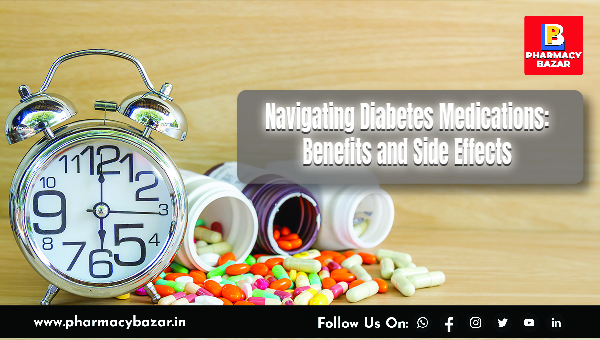Nutrient-Rich Mornings: Science-Backed Foods to Kickstart Your Day
Apr 03, 2024
Introduction:
The choices we make at the beginning of our day wield a profound influence on our overall health and vitality. Nutritionists and dieticians emphasize the importance of selecting the right foods to consume on an empty stomach, setting the stage for improved metabolism, essential nutrient intake, and heightened energy levels. In a recent Instagram post, nutritionist Sakshi Lalwani highlighted five scientifically-backed foods recommended by experts to optimize health when eaten on an empty stomach. Let's explore the nutritional benefits and scientific rationale behind incorporating these foods into your morning routine.
1. Jayfal or Nutmeg Powder: A Digestive Dynamo
Nisha Mandal, a consultant dietician and nutritionist at Motherhood Hospitals, Gurgaon, advocates for the consumption of nutmeg powder on an empty stomach. Nutmeg is known to stimulate the production of digestive enzymes, promoting gastric motility and alleviating symptoms of indigestion and bloating. Rich in antioxidants and anti-inflammatory compounds, nutmeg may enhance immunity and reduce inflammation when taken before meals. It is essential to note that pregnant women should avoid consuming nutmeg on an empty stomach due to potential complications. An optimal daily dosage is advised to avoid adverse effects.
2. Anjeer or Fig: Fibre-Rich Satiety
Figs, or Anjeer, are a powerhouse of fibre, vitamins, and minerals such as potassium and calcium. Consuming figs before breakfast can promote satiety, controlling appetite throughout the day. Particularly beneficial for pregnant women, figs provide iron, folate, and fibre, supporting fetal development and preventing neural tube defects. Figs on an empty stomach contribute to better bowel movements and increased energy levels.
3. Methi Dana (Fenugreek Seeds) and Ginger: Digestive Harmony
Fenugreek seeds are renowned for regulating blood sugar levels and improving insulin sensitivity, while ginger offers anti-nausea and anti-inflammatory properties. When combined, methi dana and ginger can aid digestion, reduce bloating, and promote overall gut health on an empty stomach. Pregnant women are advised to avoid this combination.
4. Haleem Seeds (Garden Cress Seeds): Nutrient-Rich Wellness
Packed with iron, calcium, and vitamins C and E, haleem seeds contribute to healthy blood and bones. Consuming haleem seeds before breakfast enhances nutrient absorption, and pairing them with vitamin C-rich fruits aids digestion and iron absorption. Particularly beneficial during pregnancy, one teaspoon of haleem seeds daily fulfills a significant portion of the iron requirement.
5. Horse Gram Powder: Blood Sugar Regulation and Weight Management
Starting the day with horse gram powder offers benefits such as blood sugar regulation, improved digestion, and support for weight loss due to its high fibre and low glycemic index. Soaking horse gram overnight provides additional advantages, including minimized indigestion, enhanced bowel movements, increased satiety, and cravings control. Its diuretic properties contribute to toxin elimination and kidney health when consumed regularly.
Conclusion:
Embarking on a journey towards improved health starts with the first meal of the day. Scientifically-backed recommendations from nutrition experts emphasize the importance of consuming specific foods on an empty stomach to unlock various health benefits. Integrating nutmeg powder, figs, fenugreek seeds, ginger, haleem seeds, and horse gram powder into your morning routine not only jumpstarts your metabolism but also provides essential nutrients crucial for overall well-being. As with any dietary changes, it is advisable to consult with healthcare professionals to ensure these recommendations align with individual health needs. Choose wisely, nourish your body, and set the foundation for a healthier and more energetic day ahead.
DISCLAIMER: This article is the property of Pharmacy Bazar and is protected by copyright laws. The information provided in this article is for educational and informational purposes only and is not intended to be a substitute for professional medical advice, diagnosis, or treatment. Always seek the advice of a qualified healthcare provider with any questions you may have regarding a medical condition. Never disregard professional medical advice or delay in seeking it because of something you have read in this article. The author and publisher of this article do not endorse any specific treatments, procedures, or products mentioned in this article.
Recent Post

Blood Cancer: Early Warning Signs and Diagnosis

Understanding Gallstones: Causes, Symptoms, and Treatment Options

Navigating Diabetes Medications: Benefits and Side Effects

Revolutionizing Cancer Treatment: How Unleashing T Cells' Energy Could Transform Immunotherapy

The Power of Lower Back Stretches: Benefits and Best Yoga Asanas for a Healthy Spine

8 Health Conditions That Could Be Due to Magnesium Deficiency

Unlocking Brain Health: How Lifestyle Choices Impact Cognitive Functions

When Speech Takes a Surprising Turn: Unraveling Foreign Accent Syndrome

The Optimal Time to Take Your Vitamin D Supplement: Insights and Best Practices

Beyond Diabetes: Unveiling the Hidden Health Risks of Insulin Resistance

